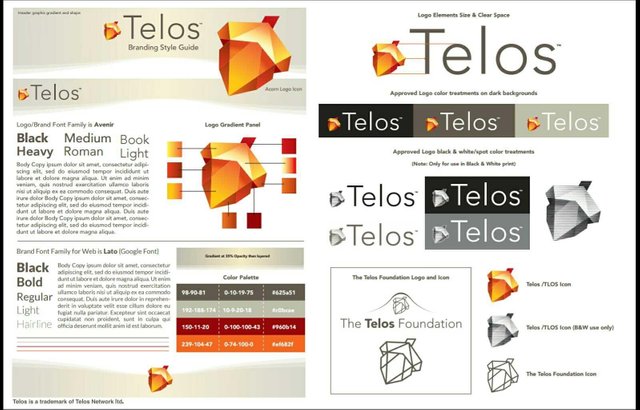Telos, more than just an EOS fork
Going live soon.
With some major differences when compared to the EOS system.
Accounts capped to 40'000 TLS.
There is no more 'Whale' oligarchy possible on the Telos blockchain. At least, that is one of the claims being made in the whitepaper and on the foundation website. It is quite a common known phenomena that the so called 'Whales' (owning large amounts of tokens) have a huge amount of control over most of the blockchains out there. From market price manipulation to a voting majority, a small group is in control. One might state that it just mimics the way the analogue realm functions. Well, Telos is about to change this.
The first go/no go will be on the 28th of september 2018. And those who own some EOS will get some Telos, but capped to a maximum of 40'000 per account. That is probably something a few will frown upon. Yet, it will prevent the Telos blockchain from an instant 'Whale' dominate. That is one of the critiques the Telos team has on the current EOS blockchain, it being mainly 'Whale' controlled. Meaning they also decide what Block Producers {BP} get voted into earning the most. Basicly that is an oligarchy, where decentralisation excists just in theory.
Almost looks like the analogue realm, where 'Whales' rule the banking monetary governance {bmg} system. Now Telos will try to change this by offering a different approach. First the will cap accounts to 40'000 Telos and secondly Block Producers will all have an income, not only the 21 active ones, but also the 30 back ups. They even have to prove, on a regular base interval, that they are able to produce blocks. Otherwise they are out.
No more 'Whale' control?
Basicly this is a game changer. Of course EOS 'Whales' can (have already?) spread their holdings across a lot of accounts, still getting a lot of Telos. Which, in combination, will still give them control, if Telos uses a snapshot of the EOS blockchain to distribute the TLS. Seems difficult to realize, to me, if the distribution is not done from scratch. If accounts on Telos can be controlled through automation, than 'Whales' can still form an oligarchy by owning a lot of 40K accounts.
Block Producers {BP} have to proof they can deliver blocks though. And 51 BPs will actually be tested if they can on interval. This looks like a healthy approach to me. As BPs that fail to produce blocks will be pushed out off the list, no matter how many vote weight they gained. Voting is kicking in with more weight when an account votes for more Block Producers. Meaning that it 'pays off' to vote for all 30 of the possible slots.
Incentive to proof.
Block Producers actually need to be able to proof they can deliver blocks. Even when not in the top 21. But positions 22 to 51 also get rewarded for keeping up. And on a regular interval they actually need to prove they can deliver blocks. For this even the BPs on hold get rewarded. That way the Telos blockchain seems to make sure there is an economic incentive for BPs to keep up with technologic demand. They have be able to prove they can deliver, no matter how heavy the blocks get.
Also Telos will keep accounts filled, even if they are not being used for more than 3 years. Yet, the accounts, filled by a snapshot of the EOS blockchain, need to be activated within a year. The total of TLS to be issued will somewhere between 300 and 500 million. And the inflation, through rewards for Block Producers, will be 2.5% per year. Half of the EOS token inflation. Basicly meaning Telos will be at least twice as rare than EOS. But the Cryptos market does not always care for that.
Will it succeed?
It depends for a large part on the support it gets from the Cryptos realm. Will exchanges list it? And how about decentralized Applications {dApp}? The dApps basicly can be ported from EOS to Telos and vica versa. Telos does even allow closed source dApps in some cases, which might be interesting to a part of their potential market. Where Telos will try to keep RAM price speculation down to a minimum and promises dApp developers it will be easy to run their project and still be able to handle the costs to keep it going.
These are quite some bold statements, one might conclude, made by the Telos foundation. Starting off with 'only' 4 GigaByte {GB} of RAM {Random Access Memory} for the Telos system might look very low. Well, compared to EOS that began with 64 GB and already the BPs decided to move towards 128 GB in small daily steps, it is just a fraction. Still aiming for 50'000 transactions per second though.
To me Telos looks promising. Even though I find it hard to believe that there will be no 'Whale' oligarchy forming. Because having automated central control over a hundred 40'000 TLS capped accounts is still a 'Whale' construction. Yet I do find it interesting enough to activate my Telos account and experience the ride. Another member to the DPOS {Delegated Proof Of Stake} blockchain family that again will proof blockchain scaling is already working. Like Bitshares, Steem and EOS already proved, without even breaking a single drop of sweat...
May the Cryptos be with us!
The looks of Telos

Image taken from a pdf offered through: https://telosfoundation.io/downloads
You have a minor misspelling in the following sentence:
It should be basically instead of basicly.Thanks, will be using basicly anyway.
yes it looks very promising to me aswell sir
Will be watching it develope.